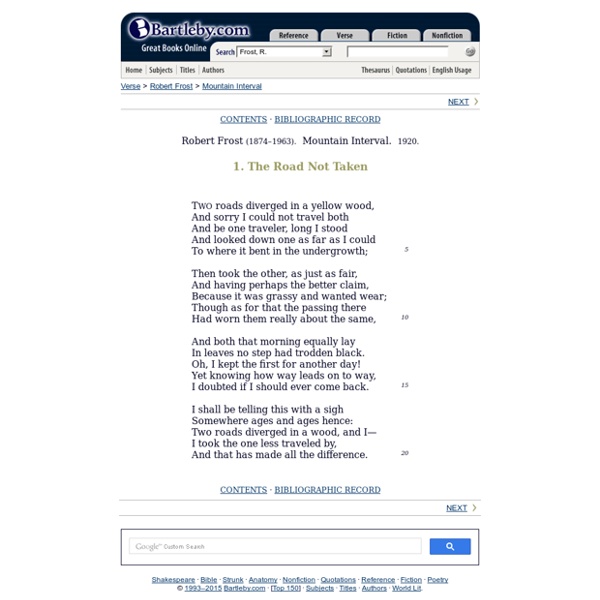



Poetry 180 - Home Page Welcome to Poetry 180. Poetry can and should be an important part of our daily lives. Poems can inspire and make us think about what it means to be a member of the human race. Poetry 180 is designed to make it easy for students to hear or read a poem on each of the 180 days of the school year. Listening to poetry can encourage students and other learners to become members of the circle of readers for whom poetry is a vital source of pleasure. Billy Collins Former Poet Laureate of the United States Learn more about Billy Collins More Poet Laureate projects
PennSound Filmed in an intimate domestic setting, traffic noises and birdsong drifting through open windows, Patton sits comfortably in a chair before the camera, reading from typescript pages, a pen poised in one hand. She performs in a fluid sprechtstimme, easing in and out of accents and personas, casually adding various musical accompaniments from time to time: she forces the knob on a toddler's toy music box, galloping through the lullabye at a hectic gait, then backs off, plinking it forward in little tonal constellations; she reaches down, offscreen, to plunk a guitar note or stroke the strings behind the nut, producing glassy little accents; her foot settles into a restless and insistent rhythm that resonates through the room. Papers flutter as pages turn, her hands trace and stretch notes through the air. She stares you down, then returns to the poem. Here's a fascinating recording from the late Ted Greenwald that we added to the site in January 2015.
Writing a Sonnet 3 of 5 Learn to write a sonnet in iambic pentameter, just like Shakespeare did. Discover the rhythm and rhyme scheme of the quatrains and couplets that make up a Shakespearean sonnet. Credit: "Sonnet 18," © 2008 Jinx!, used under a Creative Commons Attribution 2.0 Generic license: Here are the rules for writing a sonnet: It must consist of 14 lines. If you're writing the most familiar kind of sonnet, the Shakespearean, the rhyme scheme is this: Every A rhymes with every A, every B rhymes with every B, and so forth. Ah, but there's more to a sonnet than just the structure of it. First quatrain: An exposition of the main theme and main metaphor. One of Shakespeare's best-known sonnets, Sonnet 18, follows this pattern: Shall I compare thee to a summer's day? Sometime too hot the eye of heaven shines,And often is his gold complexion dimmed;And every fair from fair sometime declines,By chance, or nature's changing course, untrimmed;